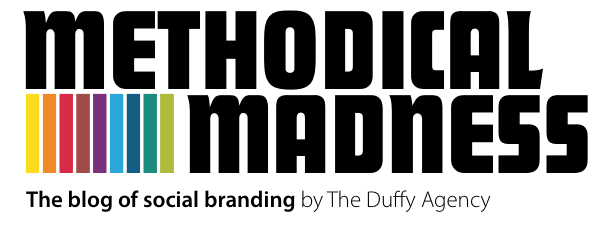Social Media: A Brave New World for PR Firms
 Tuesday, May 17, 2011 at 10:00AM
Tuesday, May 17, 2011 at 10:00AM When social media (as we know it today) first arrived on the scene back in the mid-2000s, there was a lot of internal discussions at companies as to which department was responsible for social media. Does the marketing department handle social media? Should we create a new department dedicated to social media?
When I first dove into the social media pool 6-7 years ago with Friendster (remember them?), I thought social media should really be a function of public relations professionals. After all, most public relations activities are executed using unpaid media—news stories, sponsorship mentions, etc. Social media and public relations always seemed like a natural fit for me.
The odd part is that it seems public relations firms themselves were the last to realize this connection. For example, I was in a client meeting a few months back in which their PR firm was also present. And yet, all the social media discussion was focused toward The Duffy Agency. From the client's point of view, this made total sense because The Duffy Agency has a very strong social media presence, and we evangelize the use of social media as part of an overall marketing strategy. But, in my mind at least, the silence from the PR firm was quite conspicuous.
It may be the lack of control that social media represents. We all understand that social media means letting your customers guide the discussion and giving up a little bit of control over your brand. Public relations—and marketing, for that matter—has always been about carefully controlling the message and image from the way an print ad looks to which events a brand should sponsor. For years, all the public saw was the great and powerful OZ; we never saw the people behind the curtain pulling the levers.

But social media doesn't just pull that curtain back so we can take a peek; it obliterates the curtain all together. For some, this change is happening too quickly, and they are still using old tactics. The best and latest example of this happened on Thursday. It was discovered by The Daily Beast that Facebook had hired a PR firm to wage a smear campaign against Google using Facebook's own Achilles heel, "privacy concerns" as the story.
By the way, I find it more than ironic that Facebook, the poster child of social media, would make such a blunder. In any case, part of this campaign was to reach out to an influential blogger, Chris Soghoian. As the Daily Beast reported:
"For the past few days, a mystery has been unfolding in Silicon Valley. Somebody, it seems, hired Burson-Marsteller, a top public relations firm, to pitch anti-Google stories to newspapers, urging them to investigate claims that Google was invading people’s privacy. Burson even offered to help an influential blogger write a Google-bashing op-ed, which it promised it could place in outlets like The Washington Post, Politico, and The Huffington Post."
This is how PR has worked for years. The public relations professionals have always been the ones with the relationships with news media. It is common to reach out to reporters and pitch stories. It is even common for the PR agencies to help write the stories or provide an outline. And truthfully, in my opinion, there is nothing wrong with this as long as you are truthful (and this is not to say that the comments the PR agency made about Google were not truthful). But this is something the public was usually sheltered from.
In this case, Chris Soghoian, declined to participate and decided the secrecy should end. His response was to publish the emails he received from the PR agency.
There is a lesson to be learned from this—just as there was a lesson to be learned from Walmarting Across America and All I want for Christmas is a PSP —and it's this: don't try to manipulate social media because, one way or another, you will get caught.
The beauty of social media is that many times it allows truth to rise to the top. Or at least it allows valid arguments to rise to the top, which allows readers and participants to make a more clear and informed choice of what to believe. Scams and fakes are spotted all too quickly in social media. When you start believing you can game the system, you have already lost.
As the lines between marketing, advertising and public relations begin to blur, my opinion of who should be in charge of social media has changed. I no longer think social media should be the domain of public relations. For example, The Duffy Agency is a full service international advertising agency. However, we understand the value of social media and how brands can add it to their overall marketing campaign for effective results. We would have discouraged Facebook from trying a tactic like this. In fact, the advice we give companies when they are talking about launching social media initiatives is this: Be authentic. Be truthful. And always be respectful of your audience.
It's not rocket science. You shouldn't over think it. But then again, you should also know that you can't manipulate it either.
What do you think? Wouldn't you expect more from the social media juggernaut, Facebook? Is this a case of a younger company learning a hard lesson?
Kevin Duffy is the Creative Director for The Duffy Agency's Boston office.


Reader Comments